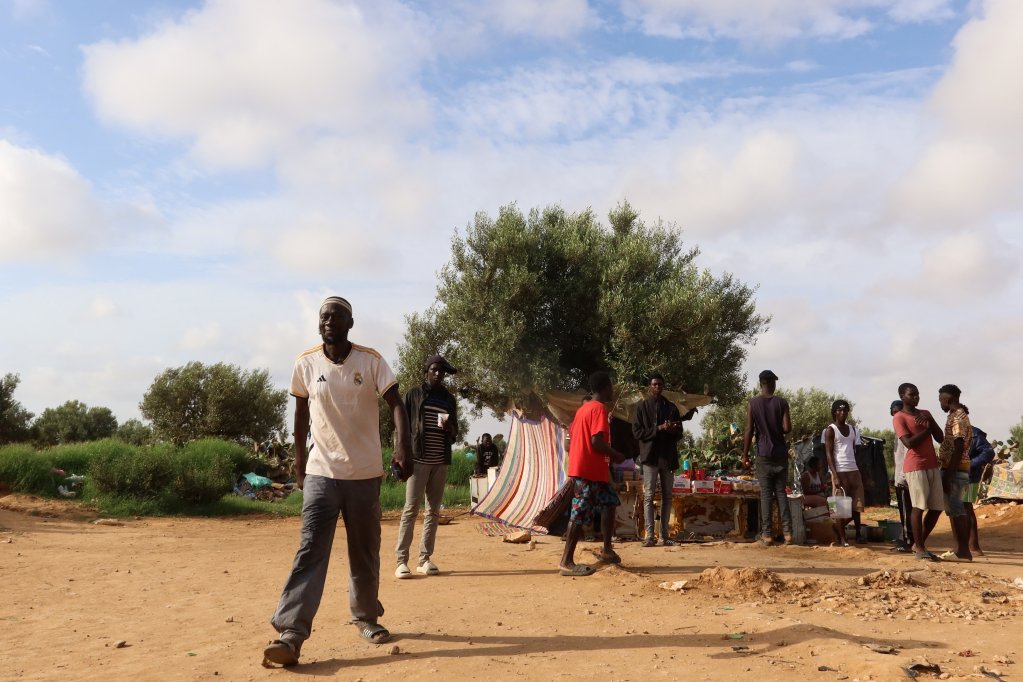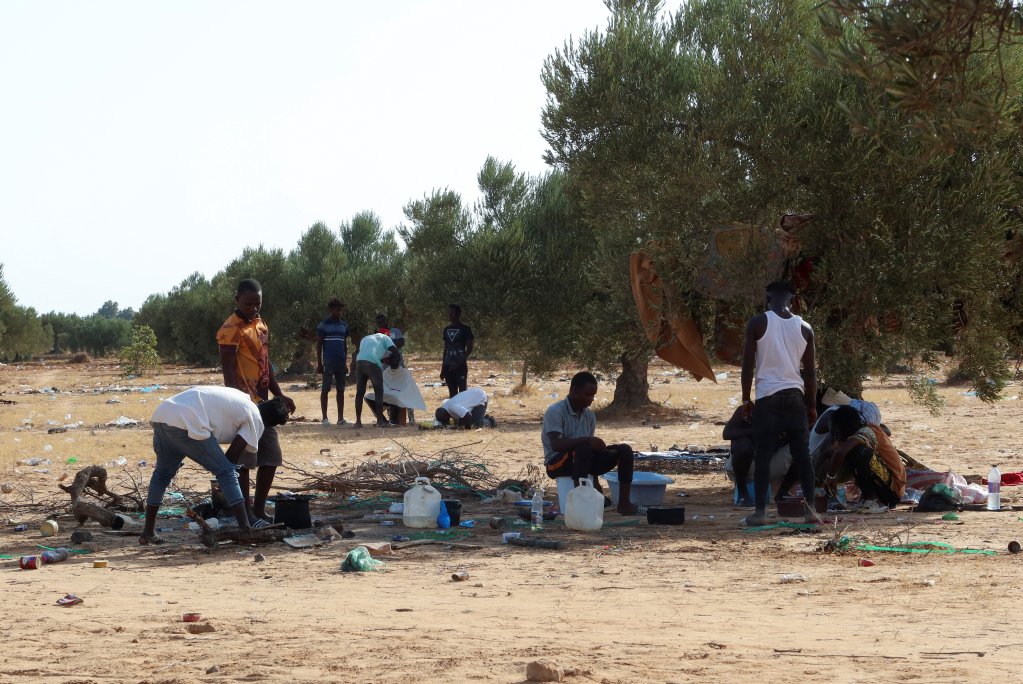Daouda* was arrested and jailed in Tunisia in February after being convicted of "illegal residence". Many sub-Saharan Africans like him are sentenced in Tunisia for "staying illegally" and find themselves locked in cells with common-law prisoners. Daouda contacted InfoMigrants to share his story.
"In February, police officers burst into the house where my wife and I were living, along with four other people in Sfax. The others were from Guinea and the Ivory Coast, and one of them was a woman who was seven months pregnant. The officers destroyed everything while searching the house. They also stole our phones and personal belongings, while pointing guns at us.
They handcuffed us and sent us to the nearest police station. We were transferred to Thyna prison in Sfax after a few hours. My wife and I were separated.
I appeared in court a week later. I was sentenced to 32 days in prison for "illegal residence."
Read AlsoTunisia: Authorities clear around 7,000 migrants from camps around Sfax
Many sub-Saharan African migrants are convicted of "illegal residence" and sentenced to several months of prison, where they often share cells with common-law inmates.
“This type of conviction has increased since February 2023 [editor's note: the date of a hostile speech by the Tunisian president against sub-Saharan Africans]. They have increased even more in recent weeks," said Romadhane Ben Amor of the Tunisian Economic and Social Forum (FTDES). "It's a way of criminalizing migrants."
In addition to imprisonment, sub-Saharan migrants living in the country also risk being abandoned in the desert, on the Algerian or Libyan border.
'I saw Sub-Saharan Africans go crazy'
What I saw in Thyna prison was inhumane.
Sub-Saharan Africans were mixed with Tunisian inmates -- rapists, criminals, and thieves in the cells. There were about 150 of us in one cell; most were Tunisian nationals, and there were about 50 Sub-Saharan Africans.
When you arrive at the prison, you become a target if you are Black.
There was a 'corporal', a Tunisian inmate who acts as leader, in each cell. The inmates could hit you for no reason. If you complained to the 'corporal,' he could beat you. If he called the guards, they beat you as well.
We tried to be as discreet as possible every day in prison and avoid any problems with any Tunisian.

Inequality existed at every level. The Tunisians were served first when food was distributed in the cell. The rations weren't the same for everyone. Black people got a one-liter bottle of milk for four people; Tunisians shared a bottle between two people. They always got more food than us.
The sleeping conditions were also different depending on who you were. Sub-Saharan Africans slept near the toilets, in the worst spot in the cell. We only had nine beds for 50 migrants. Two people shared a mattress, while the others spent the night on the floor. This wasn’t the case for Tunisian citizens.
We weren’t allowed to decide on our bedtime in the evening. The Tunisians would order us to sleep. We were no longer allowed to talk from that point on. They, on the other hand, would chat for hours and fall asleep much later.
I saw sub-Saharan Africans go crazy in prison. Some had mental problems: they would ramble, without knowing what they were saying. It was terrible.
Kidnapped after leaving prison
I was finally released and reunited with my wife at the end of March. She had been released from prison around the same time as I. So were my roommates. The police dropped us off in the middle of nowhere, under a bridge near a highway.
Thyna prison is located about ten kilometers from the center of Sfax.

As we walked toward the city, we were approached by men on motorcycles. We refused their 'help,' but they came back. A dozen people in total – Tunisians and sub-Saharan Africans – with machetes threatened us and forced us to get into the car. They kidnapped us.
They took us to a remote house on the outskirts of Sfax. They beat us with the sides of their machetes. They video-called our parents to demand a ransom while beating us. They put those who refused to pay in a well for several hours.
Read Also'Libyans, armed and hooded, picked us up in the desert' – testimony of a Guinean in Tunisia
They were so cruel. The walls were covered in blood. People must have been abused before us in that house.
I had to pay a total of 1,250,000 CFA francs [about 1,900 euros, editor's note] for my release and that of my wife. It was money I had entrusted to my sister back home. I had saved the money to pay for the Mediterranean crossing by working in construction in Algeria, before coming to Tunisia. We now live in the olive groves, fearing future evacuations, and we have nothing left."
Migrants driven from city centers have built huge informal camps in olive groves on the outskirts of Sfax, near El-Amra, for nearly two years. According to authorities' estimates, approximately 20,000 migrants live there.
In recent days, major evacuation operations have been carried out by the National Guard to dismantle these makeshift dwellings. According to reports from migrants on the ground, law enforcement burned tents and personal belongings in several camps, forcing the migrants to scatter throughout the area.
*name has been changed
